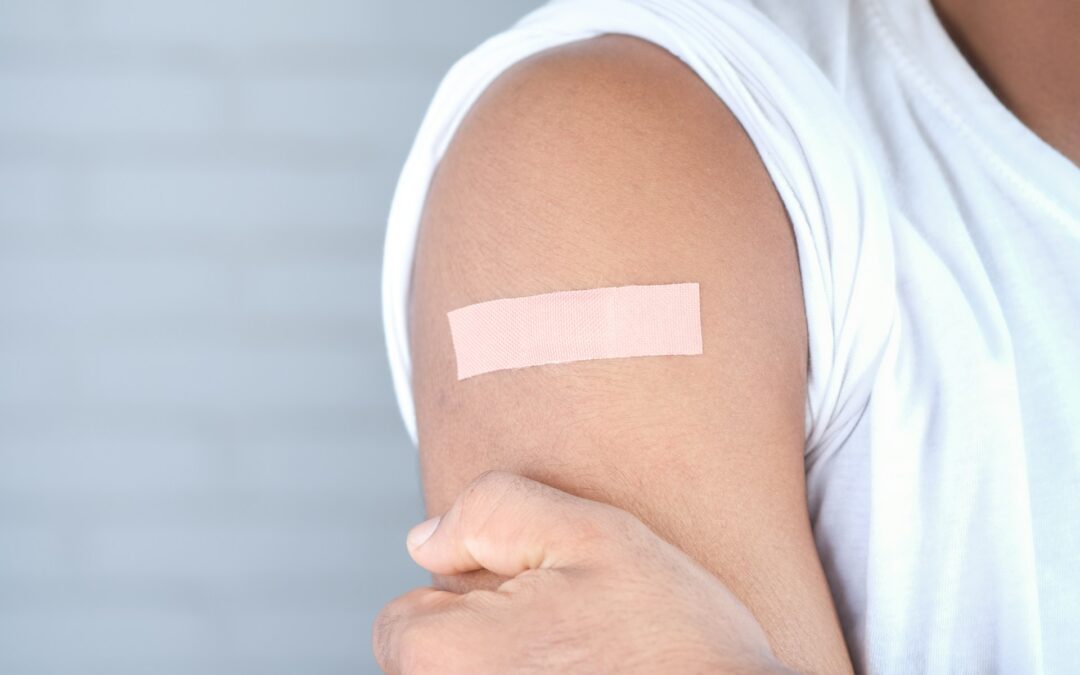Undergoing an allergy skin test can be a straightforward way to get to the bottom of pesky allergies. By identifying what triggers your body’s reactions, you can manage symptoms more effectively and lead a more comfortable life. These tests are usually quick and are performed to pinpoint specific allergens, be it pollen, pet dander, or certain foods.
Taking some simple steps before and after your test can ensure your experience goes smoothly and you get the most accurate results. Allergies can impact day-to-day life significantly, so preparing for this test can really make a difference. Let’s explore what you should do before visiting the allergist and how to take care of yourself afterward.
Before Your Allergy Skin Test
Understanding what an allergy skin test involves is one of the first things you should do to prepare yourself. These tests typically include having a tiny amount of allergen placed on your skin to see how your body reacts. You’ll likely see some redness or bumps if you’re allergic, which helps identify what you’re sensitive to. Knowing this process can help ease any worries you might have about the test.
Preparing your body for the test means steering clear of certain medications and supplements to avoid skewing results. Here’s what to keep in mind:
– Avoid Antihistamines: Stop taking these about a week before your test, as they might prevent allergic reactions, leading to inaccurate results.
– Skip Over-the-Counter Cold Medications: Some of these have antihistamines too.
– Hold Off on Herbal Supplements: Certain herbs can act like antihistamines or alter your response.
Besides medication, think about your skin. You shouldn’t apply lotions or perfumes to the areas where the test will be performed, typically your arms or back. These can interfere with the test results by blocking the allergens from making contact with your skin.
Finally, chat with your healthcare provider about your medical history. They should know about any past reactions, medications you’re taking, and any specific concerns you have. This open line of communication will help tailor the test to your needs and give you peace of mind.
Setting these steps into motion will help make the test as effective as possible, providing clear answers on what exactly is causing your allergies. Taking this proactive approach will set you on a path to manage your allergies better and enjoy each day with fewer disruptions.
During the Allergy Skin Test
When you arrive for your allergy skin test, knowing what to expect can make the experience much easier. Typically, a healthcare professional applies small amounts of common allergens onto your skin, usually on your forearm or back. They then gently prick or scratch the skin to allow the allergens to penetrate. You might feel a mild discomfort, but it’s a quick and straightforward process. Make sure to communicate openly with the person conducting the test. If you have any concerns or feel uneasy, let them know. They’re there to help you feel comfortable and ensure everything goes smoothly.
Finding ways to relax during the procedure is also helpful. Many people find that taking deep breaths or thinking about a calming scene makes a big difference. This can help ease nerves and make the test fly by without stress. Some facilities even offer options like soft music or distraction tools to improve your comfort during the procedure.
After the Allergy Skin Test
Once the test is complete, interpreting the results with your doctor comes next. Your doctor will review your skin’s reaction and help identify the specific triggers of your allergies. This conversation is important, as it will form the basis of your future allergy management plan. Take the time to ask any questions you might have and understand what the results mean for your daily life.
Managing any potential reactions is crucial immediately following the test. Redness and itching are common responses, especially if you test positive for certain allergens. Your doctor may recommend using a mild topical cream or cold compress to ease any discomfort on your skin.
Follow-up care doesn’t end there. You’ll want to discuss the next steps for keeping your symptoms manageable. This could involve exploring medications or therapeutic options like immunotherapy, depending on the severity and type of allergies identified.
Important Tips for Allergy Management
Developing a strategy for allergy management involves taking simple, yet effective steps in your daily routine. Here are some tips:
– Keep a Symptom Diary: Track your symptoms and the conditions under which they appear. This record can become a valuable tool for ongoing management and discussions with healthcare providers.
– Identify and Avoid Known Allergens: This might mean making changes at home, such as using air purifiers or switching to hypoallergenic products.
– Explore Treatment Options: Consider discussing immunotherapy with your doctor, which can help reduce sensitivity to allergens over time.
– Adjust Your Lifestyle: Consider things like diets and routines that minimize exposure to your triggers while improving overall well-being.
Finally, don’t underestimate the power of routine in allergy management. By sticking to these practices, you can greatly enhance your quality of life.
Embrace Better Allergy Management
Taking control of allergies means stepping into a lifestyle that’s thoughtful about health and wellbeing. By preparing for your tests and following up with effective management strategies, you’re setting the stage for comfort and peace of mind. Engaging in open discussions with your healthcare provider ensures you’re well-supported in this journey. Remember, while allergies can be a concern, with the right information and actions, you can significantly lessen their impact on your life.
Embrace a more comfortable life by taking control of your allergies today. By understanding your unique triggers through proper allergy skin testing and effective management strategies, you can significantly lessen their impact. Explore allergy relief options suited to your needs, like those offered by QE Strong, to enhance your well-being. For more ways to manage and alleviate your allergy symptoms effectively, explore allergy skin testing solutions.







